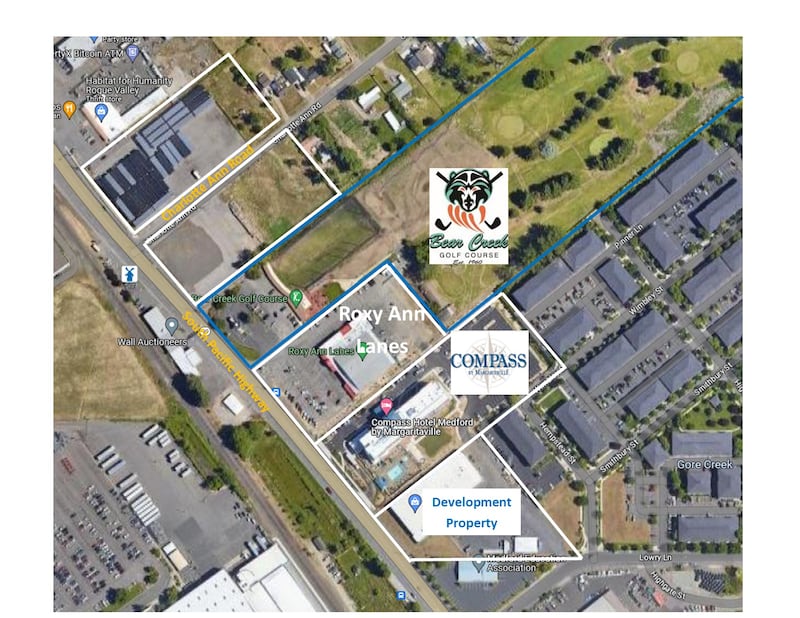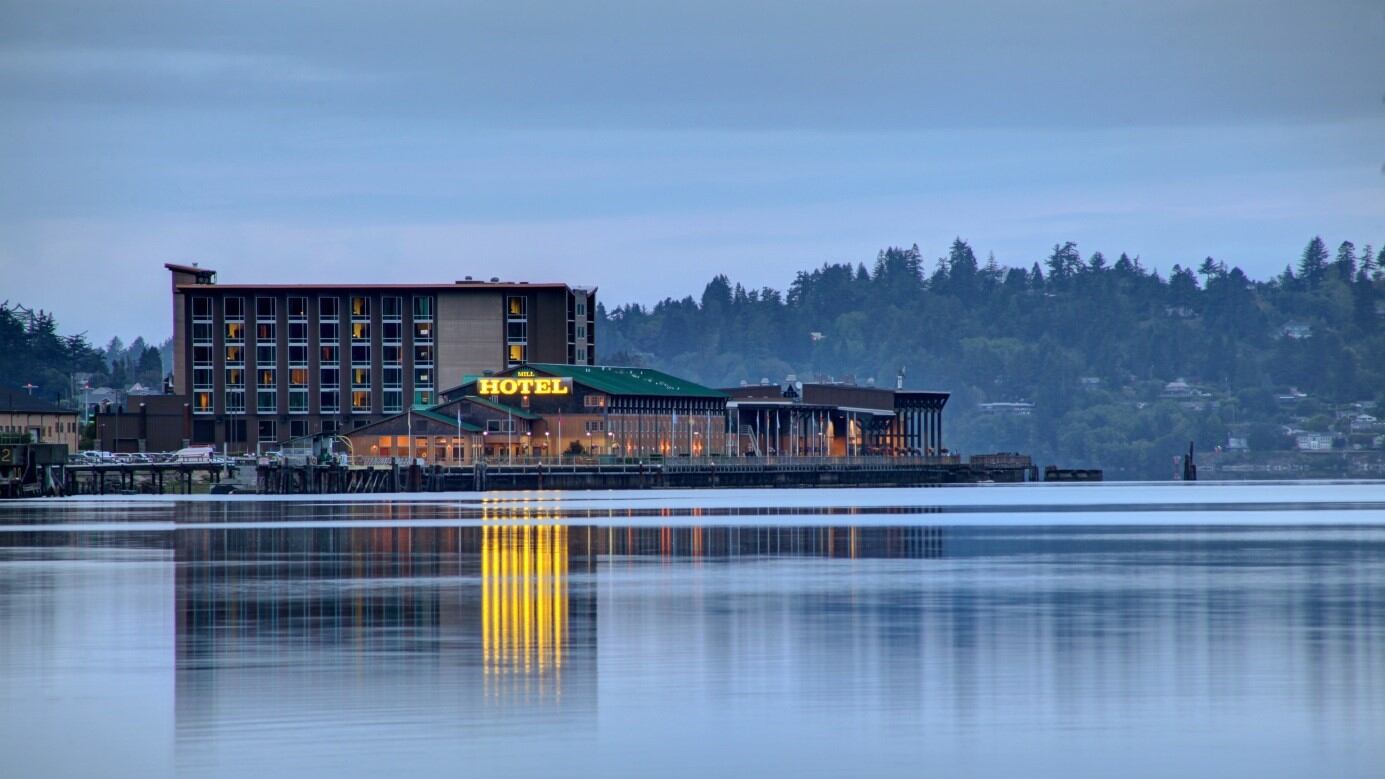The U.S. Department of the Interior signed a record of decision Jan. 10, the final step in a lengthy approval process, greenlighting the development of the Coquille Indian Tribe’s proposed casino in Medford.
“Today the Biden Administration sent a clear message: it stands with Indian Country and intends to honor its commitments to tribal sovereignty,” Brenda Meade, chair of the Coquille Tribe, said in a statement. “Waiting almost 13 years for an environmental review process to review two acres was a ridiculous weaponization of the federal National Environmental Policy Act process used to punish the Coquille Tribe for taking a legal course of action to provide for its own citizens after termination.”
Congress passed the Coquille Restoration Act in 1989. In 2012, the tribe submitted an application to create a new, 30,000-square-foot casino on a 2.42–acre site it purchased in Medford.

The tribe needed federal approval to take the Medford property “into trust,” effectively making it part of the tribe’s sovereign lands. In 2020, during the first Trump administration, the Bureau of Indian Affairs, which is part of the Interior Deartment, rejected the tribe’s application to build a casino in Medford. (From his days running casinos in New Jersey, Trump has long taken a dim view of tribal gambling.)
Then, under the Biden presidency, the BIA revived the Coquille application.
The Coquille currently operate The Mill Casino on their reservation in North Bend, about 170 miles from Medford. A casino in Medford, just off Interstate 5, would give the tribe access to a far larger population of gamblers. It would also raise the temperature in an already complicated and contentious gambling market in Oregon. Eight of the state’s nine federally recognized tribes offer casino gambling. Although two tribes operate two casinos each, Gov. Tina Kotek and her predecessors have tried to observe a one-tribe, one-casino policy, with the casinos located on reservations. (By taking the Medford land in trust, the Coquille place it on the tribe’s reservation.)
Some tribes, including the Confederated Tribes of Siletz Indians, which hopes to open a second casino in Salem, do not agree with the state’s policy. The Siletz note the policy is not law and they never agreed to it.
Oregon’s tribes are sovereign nations and exist in a sometimes uneasy relationship with the state of Oregon, which relies heavily on the Oregon Lottery for revenue and has expanded the lottery’s offerings even as it has discouraged tribes from expanding their gambling offerings. The state acts in a quasi-regulatory position: It has authority in some cases (but not in the case of the Medford project) to reject new casinos. But it is also competing with the tribes for gamblers.
Kotek and a host of other elected officials, including U.S. Sens. Ron Wyden and Jeff Merkley (D-Ore.) and the state’s only Republican congressman, U.S. Rep. Cliff Bentz (R-Ore.), have spoken out against any increase in tribal casinos and, late last year, urged the feds to take even more time before making a final decision on Medford.
Wyden said Jan. 12 he thinks the final decision by the Biden administration is wrong. “This reckless choice by D.C. bureaucrats catapults Oregon into an uncontrolled escalation of gambling with no end in sight. And it compounds the collateral damage from this casino arms race by cavalierly tossing out our state’s time-honored agreement that balances all tribes’ equal opportunities to achieve economic independence and prosperity,” Wyden said. “I will fight this senseless decision with all the options available, including the Congressional Review Act that empowers elected representatives to battle back against rogue federal agency decisions just like this one.”
The Oregon tribe most likely to be hurt by a Medford casino, the Cow Creek Band of Umpqua Tribe of Indians, and two Northern California tribes who could also be affected immediately filed for a temporary restraining order in U.S. District Court, seeking to block the Coquille from moving forward. Among other points, those tribes dispute the Coquille’s claims of ancestral ties to the Medford area.
“We cannot stand passively and allow this decision to stand uncontested given the harm it will cause across Indian Country in our progress toward the full restoration of our rights as sovereign nations—which is directly tied to our ancestral homelands,” said Cow Creek chair Carla Keene. “This attempt to manipulate the system for one Tribe’s gain is a disservice to all Tribal people.” (The Cow Creek’s casino is about 70 miles north of Medford.)
But Meade, the Coquille chair, said her tribe has waited long enough.
“Two tribal chiefs, several tribal council members and many of our elders walked on without seeing their vision to care for our people come to fruition,” Meade said. “My hope is that this decision will spur the federal government to never do this to another tribe. No tribe should go through the anguish and expense that the Coquille Tribe has endured. The decision finally offers heartening sign to all tribal advocates who have pushed for the government to meet its responsibilities and trust obligations.”
This story was produced by the Oregon Journalism Project, a nonprofit investigative newsroom for the state of Oregon. OJP seeks to inform, engage, and empower Oregonians with investigative and watchdog reporting that makes a significant impact at the state and local levels. Its stories appear in partner newspapers across the state. Learn more at oregonjournalismproject.org.

